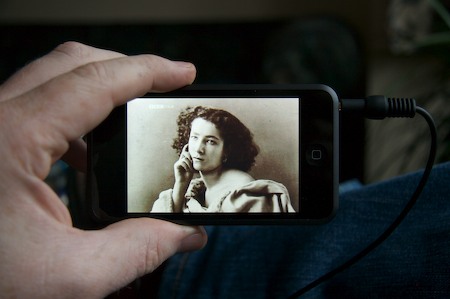
Here’s a story about miracles. Lots of them. Technological ones.
BBC4 last week aired the first episode of a series called The Genius of Photography. It was excellent and I would have missed it completely, but just as it was beginning, John, knowing that I have an EyeTV setup, sent me a text asking if I could record it.
I was working on my laptop downstairs when my phone chirped the message’s incoming arrival. I glanced at the time and saw that the show was just beginning so, with a couple of keystrokes, made a VNC connection to the Mac Mini on the top floor – all wireless, of course – and saw that the opening credits were just beginning. I clicked record on EyeTV, then went back to work.
It occurred to me that it might be fun to watch it on my new iPod Touch, so later that night I clicked on EyeTV’s convenient ‘export for iPod’ button before going to bed.
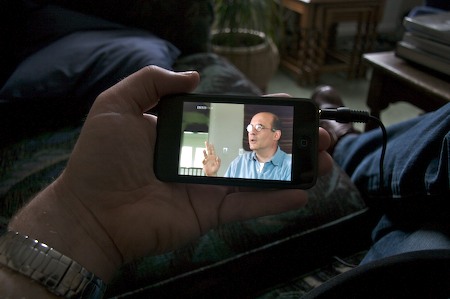
This afternoon, I slipped into my most comfortable pair of headphones and curled up on the sofa in front of the fire to watch the first episode, which was titled ‘Fixing the Shadows’, about the earliest days of photography.
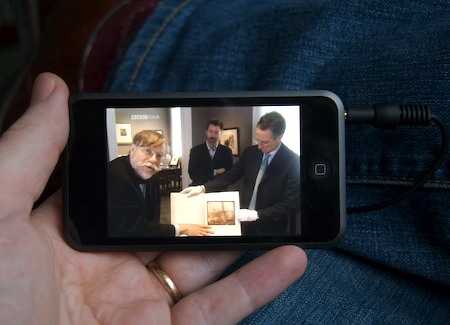
It was most engaging, beautifully produced, and the gorgeous iPod screen was a joy to watch.
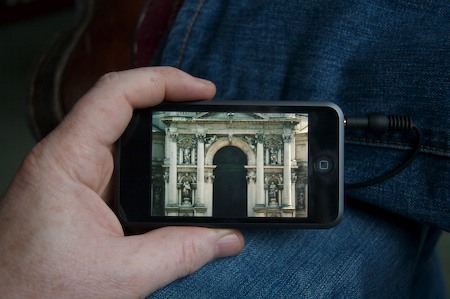
And as if this wasn’t compelling enough, it began to dawn on me just what I was doing…
Here I was, looking at a horse going around a track in Palo Alto. Except I wasn’t really, I was looking at some of Eadweard Muybridge’s famous 1878 photos of such a horse (taken, incidentally, to satisfy the curiosity of the horse’s owner – a chap named Stanford. His racecourse is used for something else now!)
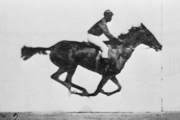
Mind you, I was really being shown these photos by somebody pointing a TV camera at them somewhere. Of course, I wasn’t seeing what came out of the TV camera. Oh no. That had been recorded, and edited, and stored, and encoded, and transmitted, and received, and stored, and decoded, and re-encoded, and transmitted and stored again, and synced to my iPod, and decoded again, with the net result that I could see it glowing on a little LCD screen I had just taken out of my shirt pocket.
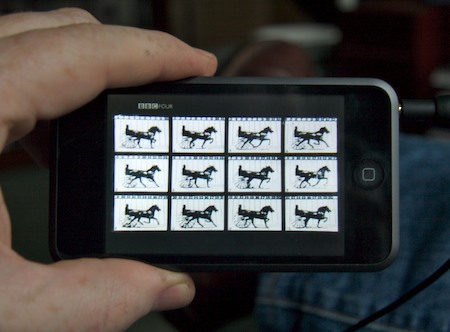
Of course, that’s an abbreviated summary of what happened, and it’s just the start. Think about how many further processes the images went through so that you could see them on your screen now!
I boggled at all of this for a moment.
Then I tapped the screen and went back to learning just how hard it had been for Daguerre, Fox Talbot et al to capture any kind of images which would persist rather than fading after a few seconds. And how they had changed the world when they eventually did so.
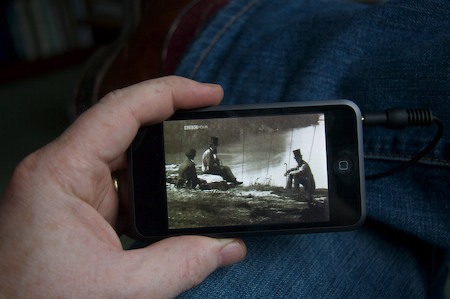
Ancient history? No.
That was about one and a half lifetimes ago.







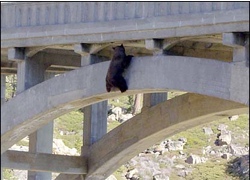
 Visitors from abroad often ask me whether I’m concerned by the level of video surveillance in Britain. It’s widely reported that we are the most-watched country in the world, with more public CCTV cameras than anywhere else.
Visitors from abroad often ask me whether I’m concerned by the level of video surveillance in Britain. It’s widely reported that we are the most-watched country in the world, with more public CCTV cameras than anywhere else.
Recent Comments